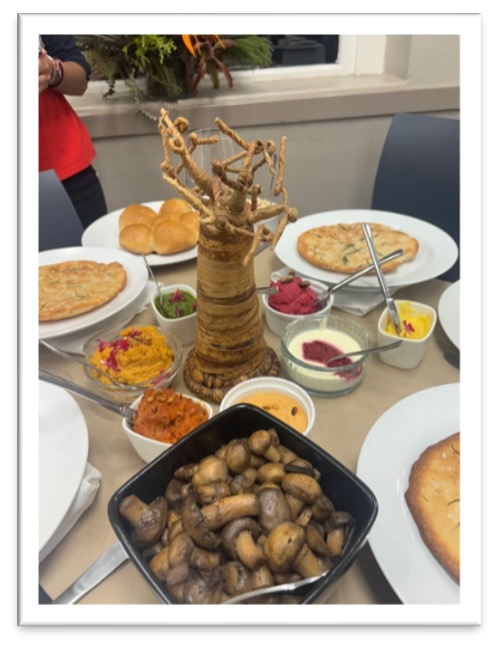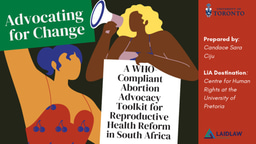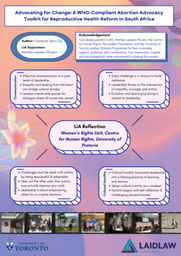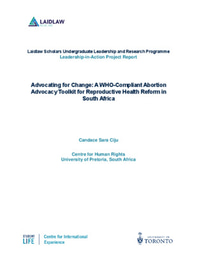Mzansi Summer: Experience Abroad Reflection
South Africa had been at the top of my bucket list for a long time. Having studied Gandhian philosophies, I was drawn to South Africa because it was where Gandhi first developed and implemented his theories of non-violent action and satyagraha. I was thrilled when I received the opportunity to work in Pretoria for my LiA. Before leaving, I immersed myself in South African history, as my knowledge was limited to the apartheid era and the struggle to end it. I studied the histories of the Khoikhoi and San people, the Bantu expansion, Dutch and British colonialism, the Anglo-Boer Wars, and South Africa’s political, social, linguistic, and economic context today. I even created a Spotify playlist filled with Afrobeats and Amapiano to connect with the South African music scene!
However, I quickly realized that reading books and watching documentaries is only a small part of truly understanding a place. Real learning comes from living in and engaging with a culture firsthand. This became clear the moment I landed in Johannesburg. Before travelling, friends and family warned me that South Africa, particularly Johannesburg, could be dangerous for a solo female traveller. Coming from Abu Dhabi, one of the safest cities in the world, and later Toronto, where I had grown somewhat more aware of my surroundings, this heightened caution was a new experience. My cousin, who lives in Johannesburg, accompanied me to my accommodation in Pretoria. Although the apartment was only a short walk from the Gautrain station in Hatfield, we decided to book an Uber for safety reasons because I was carrying heavy luggage, and it was late at night. However, our Uber driver refused to approach the station entrance and asked us to cross the road, but security guards stopped us. They warned that local taxi drivers, who were surrounding the Uber plan on robbing us and damaging the Uber driver’s car if we approached. The security guard recommended a trusted local taxi driver instead. Just minutes before, my cousin had insisted I never enter local taxis, so she was understandably uneasy. We paid more than expected for a two-minute ride, but we reached safely. Although I was grateful, I was shaken, not only by the chaos of the moment but also because my cousin had accidentally slammed my thumb in the car door.
The next day was my first day working at the Centre for Human Rights. They graciously welcomed me to Mzansi, which is another word for South Africa in Xhosa. However, it’s more than just a word, Mzansi encompasses the country's rich cultural heritage, language, deep history, and diverse communities. They asked me how my trip was, and then I let them know about the chaotic taxi situation the night before. When I asked them why this had happened, they explained that many local taxi drivers were hostile toward Uber because it had taken away their customers, leading to unemployment and poverty. Through this conversation, I learned that nearly one-third of South Africans are unemployed. This insight shifted how I approached my time in Pretoria. Rather than simply accepting safety warnings, I started questioning the systemic and historical factors behind these issues. I came to understand the deep socioeconomic inequalities rooted in apartheid-era and post-apartheid policies. This curiosity and empathy helped me better connect with my colleagues and community members, ultimately informing my contributions to the Abortion Advocacy & Action Toolkit.
During my stay, I built meaningful relationships with colleagues and students from the University of Pretoria. They took me to museums, restaurants, thrift markets, and cultural experiences. I tried traditional dishes like pap, biltong, dombolo (which I even baked at a cooking class!), and bunny chow, an Indian-African fusion dish. I also joined city tours of Pretoria, Johannesburg and Cape town, explored the Sterkfontein caves, and visited Soweto, a trip that profoundly shaped my understanding of leadership and resilience.

Image: Breaking the bread we baked with friends!
Soweto, a township established during apartheid under the Group Areas Act, represents a striking example of South Africa’s racial segregation policies. Black residents were forcibly removed from Johannesburg and relocated to areas like Soweto, which later became the center of resistance movements, including the 1955 Congress of the People, where activists adopted the Freedom Charter. Despite its rich history, Soweto still bears stark wealth disparities. Streets divide the propaganda houses built for affluent Black business owners under apartheid from impoverished neighborhoods where many Black families were relocated. These inequalities remain largely unaddressed today. I had the privilege of meeting a community leader who guided me through her neighborhood, home to South African families as well as migrants from other African nations. Several families shared one bathroom, which municipal workers cleaned only once a week. Despite these challenges, there was a strong sense of solidarity. She explained how neighbors shared food when one family went without, and residents worked together to illegally reconnect electricity after government officials disconnected it. She also described how politicians often visited during elections, making promises of better housing that were never fulfilled. Her leadership and resilience were inspiring. She knew every family personally, and her children were cared for by other families while she showed us around. People waved as we walked through the neighborhood, and children smiled brightly. That experience deeply influenced my perspective on leadership. I realized leadership is not defined by a title or position but by accountability, advocacy, and action. True leadership is rooted in community. It is about listening, supporting, and elevating local leaders like the woman I met, who embody courage and resourcefulness every day. This encounter reaffirmed my goal of pursuing grassroots and community-based policymaking that recognizes, resources, and respects local leadership.
Another cultural aspect that left a lasting impression on me was South African warmth and hospitality. Friends explained that in Pretoria, it is customary to greet staff and ask, “How are you?” when entering a store or restaurant. While I was used to thanking service staff in Toronto, I had never considered that not asking “How are you?” might come across as rude. I quickly embraced this practice and made it a habit to greet everyone, from professors to store clerks. This simple act allowed me to form deeper connections and enjoy more meaningful social interactions. I loved this tradition so much that I continued the habit after leaving South Africa, though I quickly realized that it felt unusual in other places. When I greeted an immigration officer in Dubai with “How are you?” he simply ignored me, which highlighted how cultural norms differ.
Something else I am deeply grateful to South Africa for is that it helped me rediscover my love for reading. Growing up, I was an avid reader and spent countless hours immersed in books, which brought me a great deal of joy. However, once I started university, my relationship with reading changed. With the heavy academic workload of at least 150 pages of required readings each week, I no longer felt motivated to read for pleasure. Since my first year, Ifound myself in a prolonged reading slump, only ever opening books for academic purposes rather than enjoyment.
While living in Pretoria, however, I structured my weeks in a way that left me with more free time to engage in leisure activities. This created space for a change. I often visited bookstores with friends, and through their recommendations, I was introduced to an array of talented South African authors. During my time there, I read several of these books and rekindled my enjoyment of reading. The experience was so fulfilling that even after returning to the UAE, I continued to make time for leisure reading. Thus, this summer, with great credit to my friends and colleagues in Pretoria, I was able to reconnect with a part of myself that I had missed for so long. Finding the joy of reading once again has been deeply rewarding, and it has made me feel much more like my old self.
Through these experiences, I honed several key leadership skills. Communication was essential, especially in navigating cultural differences and safety challenges. I practiced empathy and active listening during cross-cultural interactions. I became more self-aware, reflecting on my own privilege and biases as someone raised in Abu Dhabi and educated in Toronto. This journey not only deepened my understanding of South African society but also strengthened my commitment to inclusive, community-driven leadership. It reminded me that meaningful change starts with listening, learning, and building relationships.



Please sign in
If you are a registered user on Laidlaw Scholars Network, please sign in